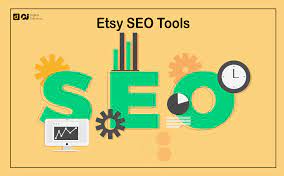small business social media marketing

small business social media marketing
small business social media marketing often struggle to compete with larger corporations in terms of advertising and marketing. However, social media has leveled the playing field for small business owners looking to promote their products or services. Social media platforms like Facebook, Instagram, Twitter, and LinkedIn offer affordable and effective ways for small businesses to connect with customers and increase brand visibility. If you’re a small business owner who wants to harness the power of social media marketing but doesn’t know where to start, this blog post is for you! We’ll explore what small business social media marketing is all about, how to launch your own campaign, tips for creating effective content that resonates with your target audience, and what to do if things don’t go as planned. So grab a cup of coffee (or tea), sit back, and let’s dive into the world of small business social media marketing!
What small business social media marketing is
Small business social media marketing is the process of using various social media platforms to promote a small business’s products or services. It involves creating engaging and shareable content that resonates with your target audience, building relationships with followers, and ultimately converting them into customers.
One significant advantage of social media marketing for small businesses is its affordability. Unlike traditional advertising channels like TV commercials or billboards, social media advertising can be done on a shoestring budget. Small businesses can set up their profiles on different platforms for free, which means they don’t have to spend any money upfront.
Another benefit of small business social media marketing is its ability to reach a wider audience. Social media allows you to connect with potential customers from all over the world who are interested in what you have to offer. By sharing quality content consistently, you can build trust with your followers and keep them engaged long-term.
However, it’s important to note that effective social media marketing requires time and effort. You need to create high-quality content regularly and engage with your followers by responding promptly to comments and messages. Additionally, understanding each platform’s algorithm will help increase engagement rates since it determines how often people see your posts.
In summary, small business social media marketing involves building relationships through various online platforms while promoting products or services effectively without breaking the bank.
How to start a small business social media campaign
Starting a social media campaign for your small business can be overwhelming, but with the right strategies and tools, it can greatly benefit your brand.
Firstly, determine which social media platforms are best suited for your business and target audience. Consider demographics such as age range, gender, interests and location when making this decision.
Next, create a content plan that aligns with your brand’s goals and values. This plan should include post frequency, types of posts (such as images or videos), and an overall theme or aesthetic for your account.
To increase engagement on your page, consider running promotions or giveaways exclusive to your social media followers. This will encourage people to engage with your content and share it with their own networks.
Track the performance of your campaign through analytics tools available on each platform. Use this data to adjust our strategy accordingly and continually improve the effectiveness of our social media efforts.
Remember that consistency is key in building a successful social media presence for any small business.
Tips for creating effective small business social media marketing
Social media has become a critical aspect of every small business marketing strategy. Here are some tips for creating effective small business social media marketing.
Firstly, define your audience and choose the right platform. Knowing your target customers will help you determine the best channels that they use most often. For instance, if you cater to younger audiences or have visually appealing products or services, Instagram may be more suitable than Twitter.
Secondly, create a content calendar that aligns with your overall business goals and objectives. This could include blog posts, videos, infographics or images that resonate with your audience while promoting brand awareness.
Thirdly, engage in conversations by replying to comments and messages promptly. This demonstrates excellent customer service skills while building trust among potential customers.
Lastly – but equally important – track insights using analytics tools such as Facebook Insights or Google Analytics. These provide valuable information about who is engaging with your content and what resonates best with them so that you can adjust accordingly.
By following these tips consistently over time, you’ll see an increase in engagement rates, website traffic and ultimately conversions!
What to do when your small business social media campaign fails
Although social media marketing can be a powerful tool for small businesses, there’s always the chance that your campaign may not produce the results you were hoping for. When this happens, it’s important to stay calm and take action to get back on track.
Firstly, assess what went wrong with your campaign. Were you targeting the wrong audience? Was your messaging unclear or ineffective? Once you identify the problem areas, make adjustments accordingly.
Secondly, don’t give up on social media altogether. Instead of abandoning ship completely, consider switching up your strategy or platform. Try out different types of content and experiment with posting at different times of day.
Thirdly, seek feedback from customers and followers. Ask them directly what they would like to see more (or less) of on your social media channels. This will help you tailor your approach based on their preferences and needs.
Don’t be afraid to ask for professional help if needed. Hiring a social media consultant or agency could provide fresh ideas and expertise in improving your campaigns.




